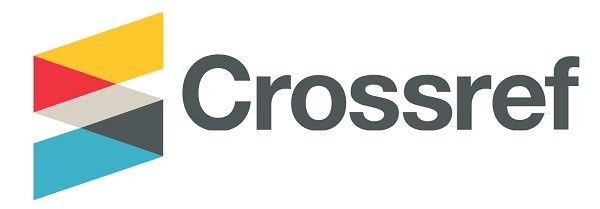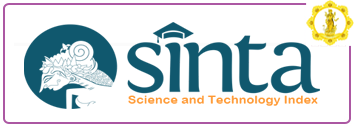RUANG LINGKUP E-MODUL ANALISA DESAIN SISTEM INFORMASI BERMUATAN TRI HITA KARANA DALAM MENINGKATKAN SIKAP SOSIAL SISWA
DOI:
https://doi.org/10.25078/jpm.v9i02.2881Keywords:
E-module, information system design analysis;, THK, social attiudeAbstract
The low social attitude of students towards the surrounding environment is a challenge in itself. This study aims to study the effectiveness of e-modules in improving students' social attitudes with the outside learning environment, especially in the Information System Design Analysis (ADSI) course. This course analyzes and designs information systems in IT projects. THK is a local Balinese culture that is essentially balanced and harmonious. The development of THK courses for ADSI aims to improve students' social attitudes towards the environment outside of academics. During the COVID-19 pandemic, the learning model widely used was the hybrid learning model. Teaching materials suitable for use in the hybrid learning model are electronic modules (e-modules). This learning media is the latest innovation from the print module, so this e-module can be accessed with the help of computers and cellphones that have been integrated with supporting software. The advantages of e-modules compared to print modules are interactive, easy to navigate, can display images, audio, video and animation. Equipped with formative tests that allow automatic feedback, the e-module is perfect for ADSI courses
Downloads
References
Agus, I. P., Giri, A., Ardini, N. L., Kertiani, N. W., Agama, K., & Tabanan, K. (2021). Tri Hita Karana sebagai Landasan Filosofis Pendidikan Karakter Ekologis, 12(2), 149–158.
Ahmadillah, A. N. A. (2021). Pengaruh Pembelajaran Model Hybrid Learning Terhadap Peningkatan Pemahaman Siswa Mata Pelajaran Pai Di Masa Pandemi. Universitas Islam Negeri Sunan Ampel Surabaya.
Akhmadi, L., Herlambang, A. D., & Wijoyo, S. H. W. (2019). Pengembangan E-Modul pada Mata Pelajaran Sistem Komputer untuk Kelas X Program Keahlian Teknik Komputer dan Jaringan di SMK Negeri 2 Malang …. Jurnal Pengembangan …, 3(4), 3874–3879.
Akla, A. (2021). Arabic Learning by Using Hybrid Learning Model in University. Jurnal Al Bayan: Jurnal Jurusan Pendidikan Bahasa Arab, 13(1), 32–52. https://doi.org/10.24042/albayan.v13i1.7811
Apriastuti, N. N. A. A. (2017). Bentuk, Fungsi Dan Jenis Tindak Tutur Dalam Komunikasi Siswa Di Kelas IX Unggulan SMP PGRI 3 Denpasar. Jurnal Ilmiah Pendidikan Dan Pembelajaran PPs Universitas Pendidikan Ganesha, 1(1), 38–47. https://doi.org/http://dx.doi.org/10.23887/jipp.v1i1.11960
Arditama, E., & Lestari, P. (2020). Jogo Tonggo : Membangkitkan Kesadaran Dan Ketaatan Warga Berbasis Kearifan Lokal Pada Masa Pandemi Covid-19 Di Jawa Tengah. JUrnal Pendidikan Kewarganegaraan Undika, 8(2), 157–167. Retrieved from https://ejournal.undiksha.ac.id/index.php/JJPP
Aryawan, I. W. (2021). Cerita Rakyat Lelipi Selan Bukit Sebagai Media Pendidikan Aspek Palemahan Tri Hita Karana. Jurnal Kajian Pendidikan FKIP Universitas Dwijendra, 12(2), 186–194.
Astalini, Darmaji, Kurniawan, W., Anwar, K., & Kurniawan, D. A. (2019). Effectiveness of using e-module and e-assessment. International Journal of Interactive Mobile Technologies, 13(9), 21–39. https://doi.org/10.3991/ijim.v13i09.11016
Aulia, F., & Andromeda, A. (2021). The Effectiveness Of Ion Equilibrium And Ph Of Salt Solution E-Modules Based On Guided Inquiry Learning For Student’s Learning Outcomes. International Journal of Progressive Sciences and …, 27(2), 700–705.
Ayu, I. G., & Tistha, A. (2020). Corporate Social Responsibility, Kearifan Lokal ‘Tri Hita Karana’, Dan Pariwisata Berbasis Masyarakat Berkelanjutan. Jurnal Ilmiah Ekonomi Dan Bisnis, 17(2), 99–105.
Benadé, G. P. (2020). Implementing hybrid problem-based learning in Mechanical Technology to enhance pre-service teachers’ self-directed learning.
Divayana, D. G. H., Sudirtha, I. G., & Gading, I. K. (2020). Application design of countenance evaluation based on tri hita karana-aneka for evaluating the students’ computer capability and students’. Cogent Psychology, 7(1), 1–18. https://doi.org/https://doi.org/10.1080/23311908.2020.1773095
Dwiyanti, I., Supriatna, A. R., & Marini, A. (2021). Studi Fenomenologi Penggunaan E-Modul Dalam Pembelajaran Daring Muatan Ipa Di Sd Muhammadiyah 5 Jakarta. Pendas : Jurnal Ilmiah Pendidikan Dasar, 6(1). https://doi.org/10.23969/jp.v6i1.4175
Efastri, S. M., & Islami, C. C. (2021). Efektivitas Pembelajaran Online pada Masa Pandemi Covid-19 di Taman Kanak-Kanak. Jurnal Obsesi : Jurnal Pendidikan Anak Usia Dini, 6(2), 868–875. https://doi.org/10.31004/obsesi.v6i2.1355
Guo, J., Li, L., Bu, H., Feng, M., Yang, Y., Zhang, Y., … Jiao, X. (2020). Effect of hybrid teaching incorporating problem-based learning on student performance in pathophysiology. Journal Og International Medical Research, 48(8), 1–6. https://doi.org/https://doi.org/10.1177/0300060520949402
Haryanti, Y. D. (2017). Model Problem Based Learning Membangun Kemampuan Berpikir Kritis Siswa Sekolah Dasar. Jurnal Cakrawala Pendas, 3(2). https://doi.org/10.31949/jcp.v3i2.596
Hikmah, N., Hamid, M., & Syamsurijal, S. (2021). Pengembangan E-Modul Interaktif Pada Mata Kuliah Jaringan Komputer di Program Studi PTIK JTIK FT UNM. Jurnal MediaTIK, 4(2), 13–16.
Johnson, E., Morwane, R., Dada, S., Pretorius, G., & Lotriet, M. (2018). Adult Learners’ Perspectives on Their Engagement in a Hybrid Learning Postgraduate Programme. Journal of Continuing Higher Education, 66(2), 88–105. https://doi.org/10.1080/07377363.2018.1469071
Juman, K. K. (2018). Model pengembangan pembelajaran analisis dan perancangan sistem berbasis online pada perguruan tinggi. Jurnal Ilmu Komputer, 3(2), 114–121.
Kertiasih, K., Kustono, D., & Sutadji, E. (2021). The Contribution of Tri Hita Karana Cultural Implementation and Self-Efficacy to Raise Technopreneurship In Students of Informatics Management. Ilkogretim Online - Elementary Education Online, 20(3), 1815–1822. https://doi.org/10.17051/ilkonline.2021.03.58
Liu, C.-X., Ouyang, W.-W., Wang, X.-W., Chen, D., & Jiang, Z.-L. (2020). Comparing hybrid problem-based and lecture learning (pbl + lbl) with lbl pedagogy on clinical curriculum learning for medical students in china: a meta-analysis of randomized controlled trials. Medicine: Systematic Review and Meta-Analysis, 99(16). https://doi.org/http://dx.doi.org/10.1097/md.0000000000019687
Mulyasari, P. J. (2021). Pengembangan E-Modul Berbasis STEM untuk Meningkatan Kemandirian Belajar dalam Pembelajaran Jarak Jauh pada Mata Pelajaran Ekonomi. Edukatif: Jurnal Ilmu Pendidikan, 3(4), 2220–2236.
Nurdin, N., & Anhusadar, L. (2021). Efektivitas Pembelajaran Online Pendidik PAUD di Tengah Pandemi Covid 19. Jurnal Obsesi : Jurnal Pendidikan Anak Usia Dini, 5(1), 686. https://doi.org/10.31004/obsesi.v5i1.699
Nurlaili, R., Zubaidah, S., & Kuswantoro, H. (2021). Pengembangan E-module Berbasis Discovery Learning untuk Meningkatkan Kemampuan Berpikir Kritis Siswa Kelas XII Berdasarkan Penelitian Analisis Korelasi Kanonik dari Persilangan Tanaman Kedelai. Jurnal Pendidikan: Teori, Penelitian, Dan Pengembangan, 6(2), 213–219.
Pavlidou, I., Dragicevic, N., & Tsui, E. (2021). A multi-dimensional hybrid learning environment for business education: A knowledge dynamics perspective. Sustainability (Switzerland), 13(7). https://doi.org/10.3390/su13073889
Prihadi, S., Sajidan, Siswandari, & Sugiyanto. (2021). The Challenges Of Application Of The Hybrid Learning Model In Geography Learning During The Covid-19 Pandemic. Geo Eco, 7(3), 233–243.
Pudjiastuti, S. R. (2020). Meningkatkan Pemahaman Materi Globalisasi dan Sikap Sosial Siswa melalui Model Pembelajaran Kooperatif Group Investigation di Kelas IV Madrasah Ibtidaiyah …. Jurnal Pendidikan Dan Pengajaran Guru …, 03, 1–5.
Putri, I. ayu karina, & Jaya, M. S. (2021). Implementasi Tri Hita Karana Dalam Pelestarian Tradisi Budaya Masyarakat Lokal Di Samsara Living Museum, Desa Jungutan, Kecamatan Bebandem, Kabupaten Karangasem, Bali, 2(2), Jurnal Sastra Agama dan Pendidikan Bahasa Bali.
Rahayu, I., & Sukardi, S. (2021). The Development Of E-Modules Project Based Learning for Students of Computer and Basic Networks at Vocational School. Journal of Education Technology, 4(4), 398. https://doi.org/10.23887/jet.v4i4.29230
Rahmawati, F., Sarwanto, S., & Budiawanti, S. (2021). Needs analysis of physics e-module based on hybrid-PBL model on critical thinking skills improvement. Momentum: Physics Education Journal, 5(2), 175–181. https://doi.org/https://doi.org/10.21067/mpej.v5i2.5740
Sukarni, W., Astalini, & Kurniawan, D. A. (2021). Literatur Review: Sistem Sosial Model Pembelajaran Problem Solving Terhadap Sikap Sosial Siswa. Edumaspul: Jurnal Pendidikan, 5(1), 106–115.
Sumarmi, Bachri, S., Irawan, L. Y., & Aliman, M. (2021). E-module in blended learning: Its impact on students’ disaster preparedness and innovation in developing learning media. International Journal of Instruction, 14(4), 187–208. https://doi.org/10.29333/iji.2021.14412a
Sutrisna, G. B. B., Sujana, I. wayan. dan, & Ganing, N. N. (2019). Model Project Based Learning Berlandaskan Tri Hita Karana. Jurnal Adat Dan Budaya, 1(2), 84–93.
Viveka, S., Pushpa, N. B., & Ravi, K. S. (2021). Online Learning Modules in Anatomical Sciences: Effective Sources for Continued Learning for Medical Undergraduates During the Unprecedent COVID-19 Pandemic. Galician Medical Journal, 28(3), E202136. https://doi.org/10.21802/gmj.2021.3.6
Wu, J. Y., & Nian, M. W. (2021). The dynamics of an online learning community in a hybrid statistics classroom over time: Implications for the question-oriented problem-solving course design with the social network analysis approach. Computers and Education, 166(January), 104120. https://doi.org/10.1016/j.compedu.2020.104120
Wulandari, S., Octaria, D., & Mulbasari, A. S. (2021). Pengembangan E-Modul Berbantuan Aplikasi Flip Pdf Builder Berbasis Contextual Teaching and Learning, 5(2), 389–402.
Yusuf, M., & Arfiansyah, W. (2021). Konsep “Merdeka Belajar” dalam Pandangan Filsafat Konstruktivisme. AL-MURABBI: Jurnal Studi Kependidikan Dan Keislaman, 7(2), 120–133. https://doi.org/10.53627/jam.v7i2.3996
Zulkarnain, W., Sunarni, & Rizkita, K. (2020). Development of information and communication technology-based hybrid learning in group dynamics courses with collaborative problem solving models. International Conference on Education and Technology (ICET). https://doi.org/https://doi.org/10.1109/icet51153.2020.9276632









